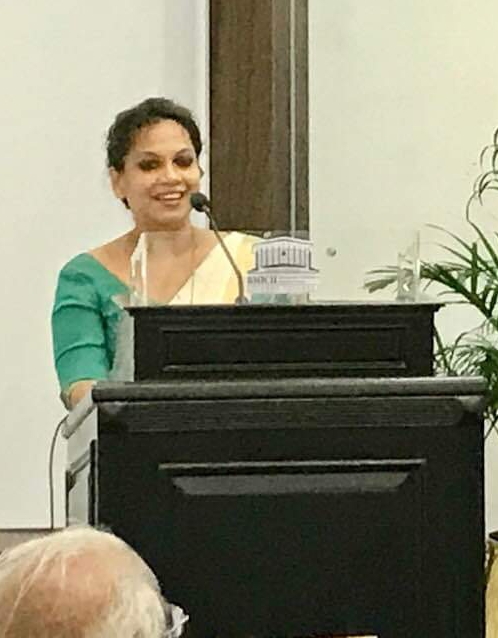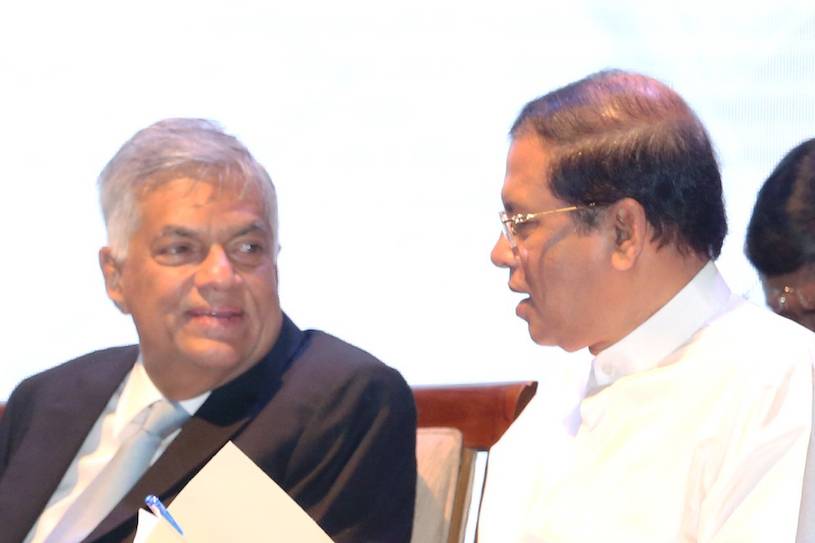 Few months back, I asked my facebook friends what ‘Yahapalanaya’ meant to them. Posed at a time when the regime still had faint hopes of continuity, I was quite intrigued by the diverse range of reactions received, more negative than positive, which prompted me to share my own take on the ‘good governance’ performance by the ‘Yahapalanaya’ regime.
Few months back, I asked my facebook friends what ‘Yahapalanaya’ meant to them. Posed at a time when the regime still had faint hopes of continuity, I was quite intrigued by the diverse range of reactions received, more negative than positive, which prompted me to share my own take on the ‘good governance’ performance by the ‘Yahapalanaya’ regime.
‘Good Governance’, although globally contested and aligns a western form of governance constituted the core platform on which the ‘Yahapalana’ government was elected. The term has been variously defined in international development literature and encompasses two main components ie efficient service delivery and democratic decision making. Democratic decision making, at a minimum, entails elements of transparency, participation and inclusivity in decision making processes.
The ‘Yahapalanaya’ movement, at the time of elections in January 2015, made many pledges. Apart from those relating to constitutional, legal and institutional reforms, there were also several others – the promise of technological advancement through free wifi and google balloon, employment opportunities through the creation of 1,000,000 jobs, economic prosperity but above all, reconciliation and peace, all of which, turn out, at the end of four years, to be a plethora of partially or unfulfilled promises. Hence, a serious erosion of the legitimate expectations of the people.
If I look at delivery of economic progress, well-being and security of the people, as indicators of service delivery, I can only note the epic failures the regime is associated with.
The country has witnessed a deepening crisis with slower growth rates and ever increasing cost of living underpinned on policy confusion and incoherence. The GDP growth rate steadily dropped from 5 % in 2015 to 4.4% in 2016 and to 3.3% in 2017 . A study released by Verite Research Sri Lanka highlighted that of the 2018 Budget promises, as little as 8% pledges were honored by mid- 2018.
From Volkswagen hoax to google balloon and free wifi to rural development through Gam Peraliya, what the public has seen is a journey through a fantasy land in hope than reality. For all its failures, the regime seems to easily find a scapegoat, be it in the so-called debt trap created by the Rajapakse regime or the monetary policies of the Trump administration.
When I raised these issues earlier on, many of my Colombo friends said ‘oh but there is greater freedom now as there are no white vans’. Is freedom and security our privilege anymore? I recall a recent conversation I had with a youngster from Colombo suburbs – he looked at me in surprise when I explained to him that there is greater freedom now in the absence of white vans – he asked me if I am aware of the rising level of under-world criminality in society. His answer convinced me that violence has permeated to different levels of society that is not captured in the discourses of those enmeshed in the so-called white van rhetoric. Needless to say that the serious security lapses that came to light with the terror attacks we experienced recently convinces us that security of life and personal freedoms are not so much a choice anymore. These lapses have very seriously undermined the state’s ability to provide basic security, both public security and national security. Instead of owning and being responsible for its own failings, the passing of responsibilities and exonerating oneself by the government leaders is all what could be seen. And as a result, non-political figures such as the Cardinal Malcom Ranjith and the Army Commander seem to have more legitimacy among the people in these times of distress.
The trends present a serious failure of governance. The ‘Yapahalana’ government’s ability to deliver services, even at the very basic level, be it in the realm of economic, social justice or security has come to be seriously questioned.
Has decision making processes shown better progress?
At a recent workshop on ‘Implications of Culture for Constitution Building’ held in Colombo, Dr. Harini Amarasuriya, very eloquently shared her experience being part of the public consultation process preceding the Constitutional Reforms process under the ‘Yahapalana’ regime. She highlighted how superficially public consultations were approached and the lackadaisical treatment of the recommendations of the Public Representations Committee by the framers who already had the structure and the framework for a new Constitution in mind. Law making processes have been anything but transparent or participatory as was saw from the manner of passing of the Amendment to the Provincial Council Elections Act in 2017. Introduced as a Bill to increase women’s representation in Provincial Councils, was later passed by Parliament after dubiously expanding same during the Committee stage to include electoral reforms to the election of Provincial Councils. The introduction of a new electoral system was used by the Government to justify postponing elections to Provincial Councils and placing them under the purview of the Governor, when their term expired. As a consequence, the terms of eight out of nine Provincial Councils have long expired by now with elections not even contemplated in the near future, making these representative bodies dysfunctional.
The public has also witnessed the contestations surrounding the making of bilateral agreements. The most prominently featured in the public domain are the ECTA and the Singapore Free Trade Agreement. While not being totally rejectionist of bilateral agreements, the concerns are with regard to the negotiation processes which have been tainted with secrecy and exclusivity and as such, contravenes the rhetoric of transparency associated with the Yahapalana government.
The regime’s attitude towards transparency and openness is amply evident from the dual approach it adopts towards access to information. While guaranteeing the people’s right of access to information through the 19th amendment to the Constitution and RTI legislation during the euphoria of commitment to democratic reforms, the scrupulous attempts to restrict this very same right is evident in the exclusion of RTI in almost all subsequent legislation passed by Parliament after the RTI Act, namely the Office of the Missing Persons Act No. 14 of 2016, the National Audit Act No. 19 of 2018 and the Office for Reparations Act No. 34 of 2018.
A logical assessment of such leads me to believe that ‘Yahapalanaya’ has failed substantially on the core elements of efficient service delivery and democratic decision making. Instead of practicing good governance, it appears that what has transpired has been only a means of good elite governance. I have to say then in concluding that ‘Yapahalanaya’, a term which cannot now be referred to with any level of seriousness, remains simply a political rhetoric, a confusion and just an ideological construct that has not been able to perform even the basic functions of a modern state.
https://data.worldbank.org/indicator/NY.GDP.MKTP.KD.ZG?locations=LK

